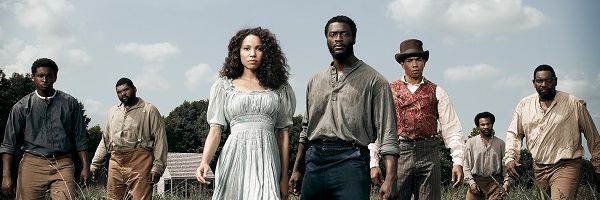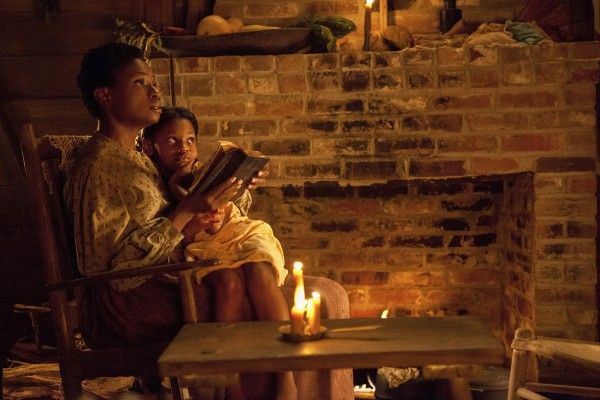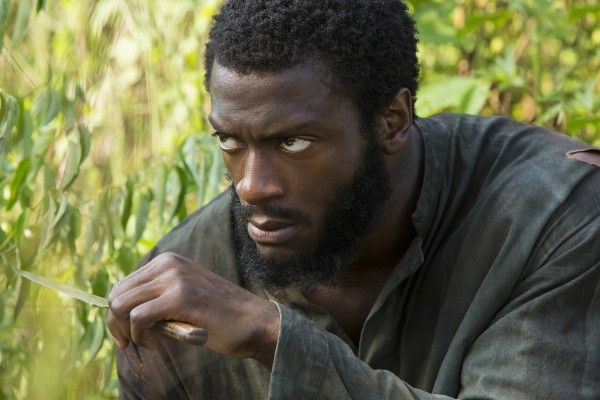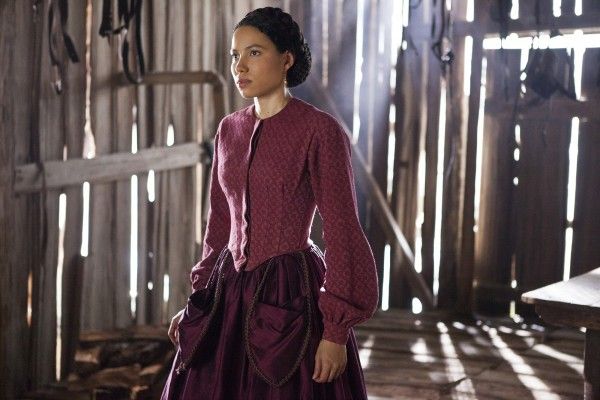The central story of WGN’s new series, Underground, is the foundations of escape for African-Americans seeking a way out of slavery, whether it be through the luck of finding and endearing themselves to a helpful white person or planning and executing a run for freedom on their own. This is the hook of this ambitious and often shatteringly emotional show, specifically in the storyline led by Aldis Hodge’s Noah, who plans to escape the plantation owned by Tom Macon (Reed Diamond) with a quartet of his fellow slaves, played by the likes of Mykelti Williamson, Alano Miller, Theodus Crane, and Rectify breakout Johnny Ray Gill. What truly sets the series apart from similar narratives, however, is its narrative breadth, its not entirely successful but nevertheless enthralling scope in detailing the world of the pre-Lincoln south, from the white men and women who rose to power by enslaving persecuting, and, yes, killing African-Americans to those African-Americans who sacrificed, in every imaginable way, to survive the times.
The series is the brainchild of former Sons of Anarchy staff writer and Helix scribe Misha Green and Joe Pokaski, one of the writer-producers behind Daredevil, CSI, and Heroes, and the pair’s history in popular television speaks to the show’s enveloping glut of story. The triumph of the series in its atmosphere, in how wide it casts its proverbial net without losing its sense of historical and personal nuance, and this goes equally for its white characters as it does its African-American characters. There’s a great scene in the third episode where Macon asks his slave driver, Meekes (P.J. Marshall), to join him and a group of other plantation owners, who are backing Macon’s political campaign, for drinks, a request that ends up revealing core differences in perspectives between employer and employee. Elsewhere, the slave driver’s right-hand man, Cato (Miller), must play the role of a cruel, abusive manager to allow Noah and the group more freedom to work on their escape plan.
Beyond that, there’s Christopher Meloni’s enigmatic, complexly realized August, who works closely with a older, free black man (the great Clarke Peters) but also must kill a runaway in one of the series most haunting sequences, as well as Marc Blucas’ John Hawkes, a skilled lawyer who becomes more deeply involved with the movement to free African-Americans. Even these arguably progressive figures, however, are mere blips in a landscape of violent racism and bigotry, and the creators, along with series director Anthony Hemingway, who cut his teeth on The Wire, Treme, and True Blood, create an atmospheric world as thick with prejudice, fear, pain, and death as it is with historical detail in production design, lingo, and wardrobe. As a visual landscape, it’s convincing in nearly every sense, thanks largely to the corners of characters and procedure in the hunting and protecting of slaves throughout the American south.
There’s obvious ties between this and current happenings, from the outright murders of Trayvon Martin and Jordan Davis to the police-sanctioned killing of Eric Garner. The show’s creators and producers, including musician John Legend, attempt to underline the connection of these past events to today through the use of modern music, including the opening scene, soundtracked to Kanye West’s ferocious “Black Skinhead.” It’s a bold step that doesn’t quite work, mainly because it’s the sole element of the production that touches on the tragic resilience of racism and unjustified violence against African-Americans. If it’s meant to be seen as a show of how African-Americans have overcome these times to become heralded, politically active pop stars, the series makes poor choices in what songs are used, other than West’s unrelenting Yeezus track.
Regardless, the use of this music undeniably brings up the concept of the present in a show that is built on its historical accuracy and nuance, and what’s missing from the film is more of the present. This could have come in use of newsreel footage or, even better, making the series about the making of a series like Underground. That would allow Hemingway and the writers to touch more openly on how the fracturing of racism by those who escaped has effected our day and age and the decades before. As it stands, the series is merely a stirring, aspirant historical drama that speaks to the first cracks in the most horrifying, complex tradition that America ever adopted, led by people that were courageous enough to lay their life on the line for freedom after a lifetime of building America under the boot heal of Caucasians.
Rating:★★★ Good - Worth It
Underground premieres Wednesday, March 9th on WGN America.




